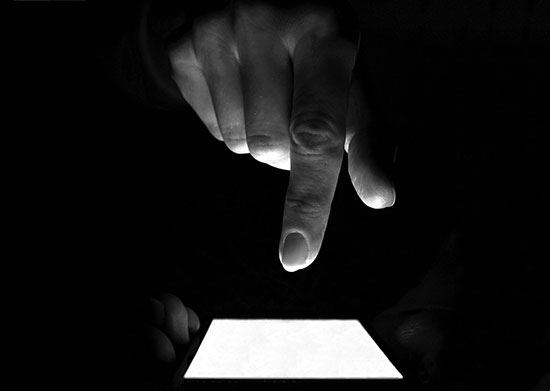
Sept. 18, 2019 – Hopefully you’ve already heard of the typical scam that targets attorneys: A new client contacts a law firm regarding a collection matter. The lawyer reaches out to the defaulting party and demands payment. Seemingly afraid of the lawyer’s representation of the new client, the defaulting party agrees to immediately pay the outstanding sum owed.
The lawyer informs client of the good news and client requests that the lawyer deposit funds received into the lawyer’s trust account, deduct the lawyer’s fees, and then issue a check to the client for the difference.
If the lawyer does not wait a sufficient period of time for the check to clear from the defaulting party and cuts a check to the new client in the interim, the lawyer will have a shortage in the trust account if the check turns out to be fraudulent.
New Tactics
Previously, these scams were easy to spot. The potential new client would be located in an overseas country outside of the United States, the transaction would involve a large sum of money, and the client would request the easily collected funds from the fake defaulting party to be deposited into the lawyer’s trust account, and then immediately wired overseas.
 Christopher C. Shattuck, Univ. of La Verne College of Law 2009, M.B.A. U.W.-Oshkosh 2015, is manager of Practice411™, the State Bar’s law practice assistance program. If you have questions about the business aspects of your practice, call (800) 957-4670.
Christopher C. Shattuck, Univ. of La Verne College of Law 2009, M.B.A. U.W.-Oshkosh 2015, is manager of Practice411™, the State Bar’s law practice assistance program. If you have questions about the business aspects of your practice, call (800) 957-4670.
However, scammers are trying a new, sophisticated approach, says Rhinelander attorney Lawrence J. Wiesneske.
The supposed ‘new client’ was a company in Texas that had purportedly recently wrapped up negotiations with a company based in Wisconsin for a $39 million lease of off-shoring drilling equipment. The phony new client provided a template allegedly used in other deals, and simply requested the template to be modified to conform to Wisconsin law.
“It seemed odd that a company from a small town in Wisconsin would be engaged in such a large transaction, so I reached out to the company.” Wiesneske said.
Turns out, the company was a single gas station and convenience store. The company had received other inquires and indicated that it had no need for an offshore oil rig. Upon discovering the scam, Wiesneske informed the scammer of the discovered fraud and reported the matter to his local county bar association, Office of Lawyer Regulation (OLR), and State Bar of Wisconsin.
Voice Scams on the Rise
In addition to email scams, lawyers should be on the lookout for voice scams.
A recent Forbes.com article outlines how a United Kingdom CEO was scammed into wiring funds based on real-time phone instructions from scammers that used software to mimic the CEO’s boss at a parent company.
There were other warning signs, such as the phone number used by the caller. However, even the phone number displayed on caller ID can be faked.
Tips on Avoiding Scams
The OLR has guidance on scams targeting lawyers and trust accounts. In addition to the red flags discussed above, recommendations include:
-
holding deposits in trust until the funds clear;
-
explaining to clients that trust funds will not be disbursed until cleared;
-
verifying the accuracy of contact and adverse party information; and
-
ensuring your firm has adequate safeguards to detect and prevent wire fraud.
What additional safeguards can your firm put into place?
A July 2019 Wisconsin Lawyer™ article encourages firms to review their insurance to determine if coverage would apply in different scenarios. In addition to malpractice insurance, the article recommends exploring business, cyber, and crime coverages.
Here are more tips to help you stay ahead of scams:
-
review your insurance for adequate coverage;
-
join the free State Bar of Wisconsin Practice411™ elist to stay updated on current scams;
-
review the OLR’s recommendations for maintaining commercially reasonable security for electronic transactions;
-
get a free, confidential consultation from the State Bar Practice411 and Ethics programs. Call (800) 957-4670 for Practice411 and (800) 254-9154 for the Ethics program; and
-
check out these additional agencies that accept reports of attempted scams.
If you can, share your stories: the more knowledge we have to identify and stop future scams, the better off we are.
CLE Where You Are: How to Protect Your Law Firm from Hackers, Data Thieves, & Tech Invaders
Join Christopher Shattuck, State Bar of Wisconsin Law Practice Assistance Manager, for a free Practice411™ CLE program, How to Protect Your Law Firm from Hackers, Data Thieves, & Tech Invaders.
Shattuck is taking this program on the road around Wisconsin to share strategies for cybersecurity that you can implement in your practice. The presentation is free and open to all State Bar members. While walk-ins are welcome, please RSVP by email to Tamra Paulson at tpaulson@wisbar.org.
-
Sept. 23: 12-1 p.m.
Christianos Pizza, Green Lake
-
Sept. 24: 12-1 p.m.
Mauston Park Oasis Restaurant, Mauston
-
Sept. 25: 12-1 p.m.
Vernon County Courthouse, Viroqua
-
Sept. 26: 12-1 p.m.
Grant County Courthouse, Lancaster
-
Sept. 27: 11 a.m.-12 p.m.
Green County Historic Courthouse, Monroe
Shattuck is available by appointment to provide confidential consultations over the phone or at your office concerning any practice management issues you may have. To schedule a consultation, feel free to send Shattuck an email. To receive updates on the road trip, join the Practice411 elist via WisBar.org.
Practice411 is a member benefit and included in the cost of your dues. There is no charge to contact the program for assistance or to join the elist.
